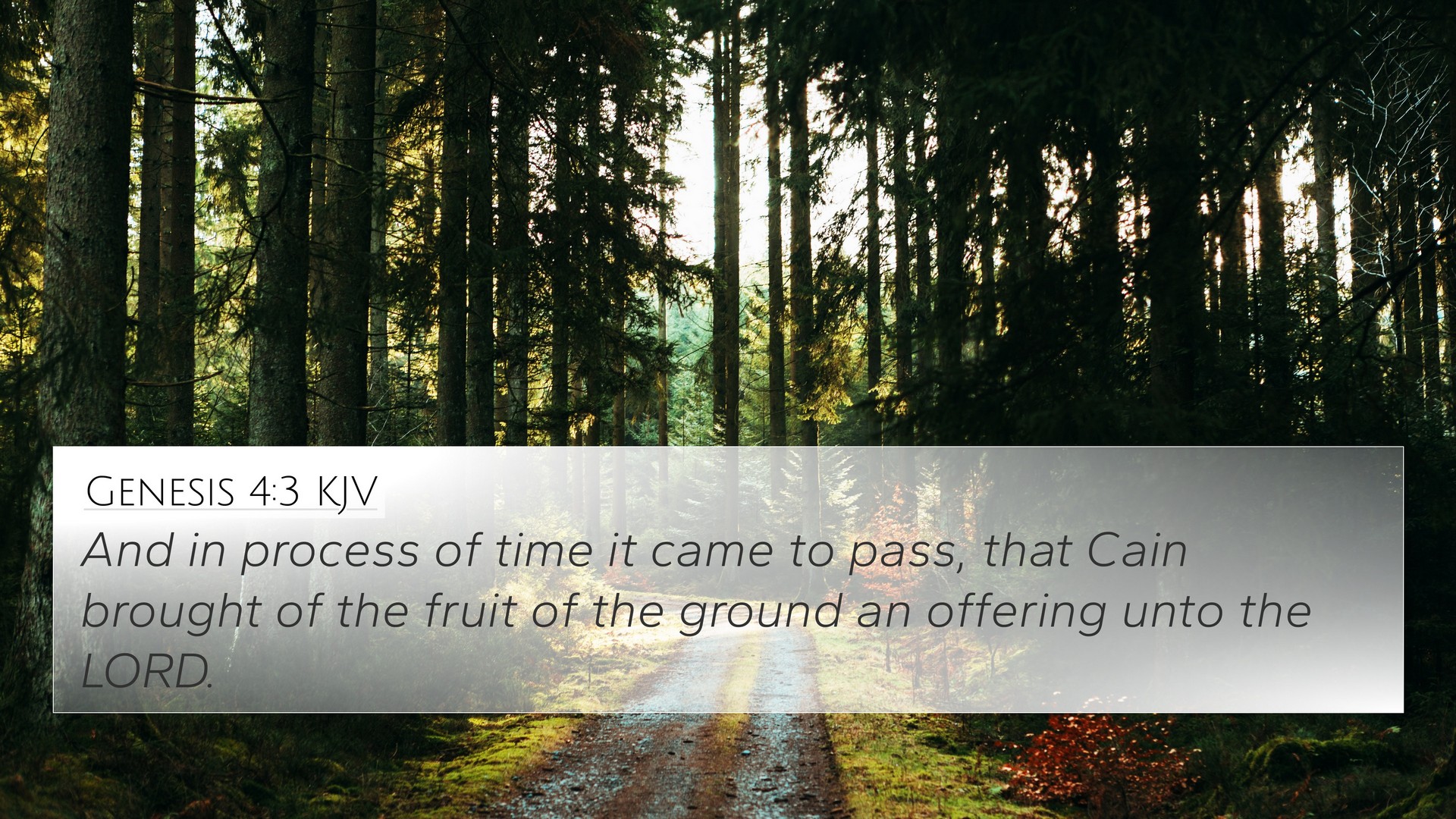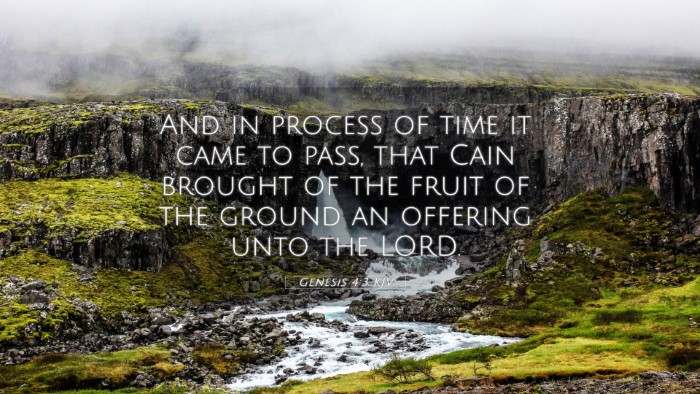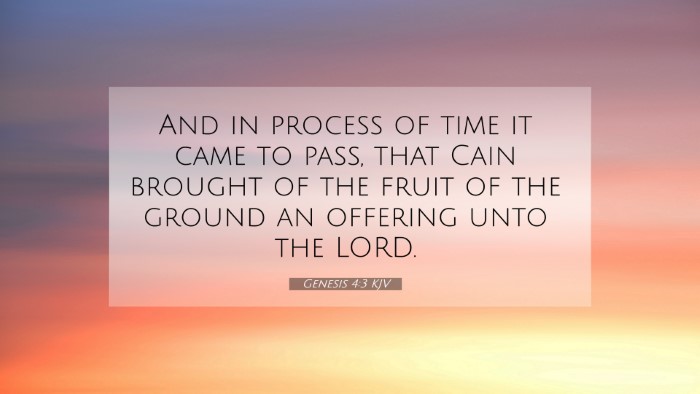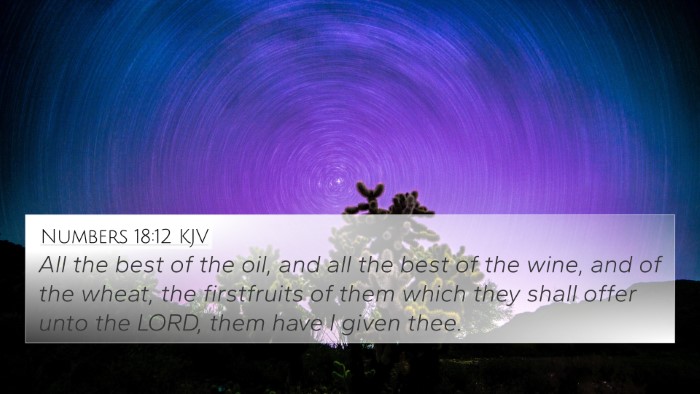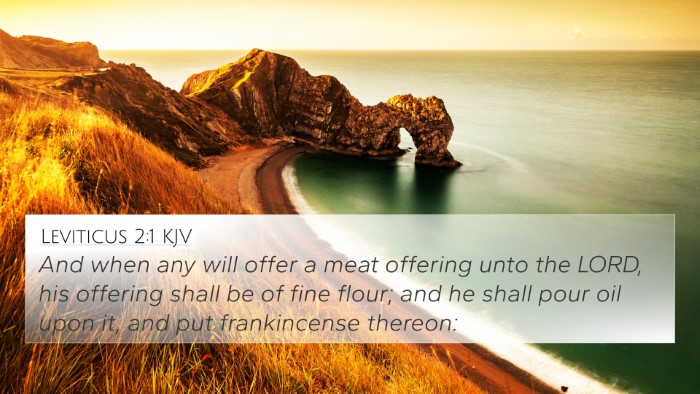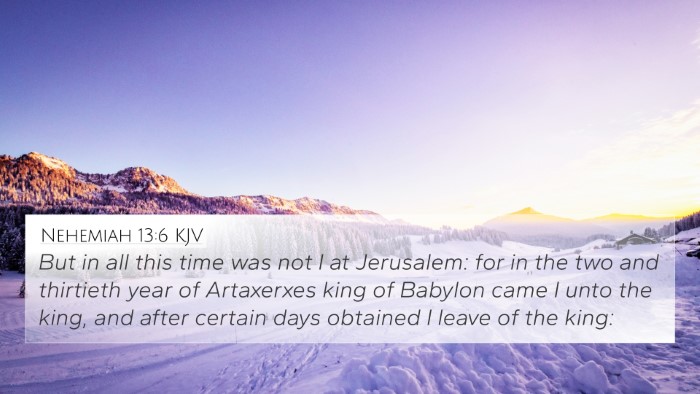Meaning and Interpretation of Genesis 4:3
Genesis 4:3 states, "And in the course of time Cain brought to the Lord an offering of the fruit of the ground.". This verse introduces significant themes regarding worship, offering, and the disposition of the heart before God.
In this verse, we see Cain bringing an offering to the Lord, which can be viewed as a gesture of recognition and dedication to God. However, the context of the offering is crucial for understanding the deeper implications of this act.
Here, we explore insights from various public domain commentaries, including those by Matthew Henry, Albert Barnes, and Adam Clarke.
Insights from Commentaries
-
Matthew Henry:
Henry emphasizes that Cain’s offering was "of the fruit of the ground," pointing out that while this was a legitimate offering, it seemed to lack the heart or faith that should accompany true worship. Henry suggests that there is a distinct difference in Cain's offerings compared to his brother Abel's, indicating that the condition of the heart matters significantly to God.
-
Albert Barnes:
Barnes notes that the timing of Cain's offering mentioned as “in the course of time” may suggest that it was made according to a specific schedule rather than being a spontaneous act of gratitude or devotion. He interprets this as possibly indicative of the difference in intention between Cain and Abel, wherein the latter may have offered with a more sincere heart.
-
Adam Clarke:
Clarke provides a critical view on the nature of Cain's offering by stating that it could have simply been a mere formality. He asserts that the outward form of worship and offering is rendered useless if it does not stem from genuinefaith and recognition of God's supremacy.
Thematic and Cross-Referencing Insights
Genesis 4:3 serves as a foundation for a deeper understanding of worship in the Bible. Below are some thematic connections and cross-references:
- Genesis 4:4: Abel's offering, which was accepted by God, contrasting with Cain's.
- Hebrews 11:4: Abel's faith exemplified through his offering shows the importance of intention.
- 1 John 3:12: Highlights the significance of doing right as Abel did, in contrast to Cain's actions.
- James 4:3: Discusses the heart's intention behind prayers and offerings.
- Malachi 1:8: God's reaction to improper offerings sought by His people.
- Matthew 5:23-24: The importance of reconciling with one's brother before offering gifts at the altar.
- Romans 12:1: Calls believers to present their bodies as living sacrifices, highlighting the essence of true worship as opposed to mere offerings.
Exploring Connections and Further Study
Understanding Genesis 4:3 within the broader Biblical narrative allows for an enriching study. It connects with themes of proper worship and God's expectations from His creation.
For those interested in a comprehensive Bible study, there are various tools for Bible cross-referencing available, such as:
- Bible concordance
- Cross-reference Bible study resources
- Identifying connections between Old and New Testament
Conclusion
Genesis 4:3 invites believers to consider the motives behind their worship and offerings. By using a Bible cross-reference guide, you will discover greater insights into how this verse relates to broader themes in the scripture.
The journey through the text reveals connections and encourages a heart posture aligned with genuine faith—an essential for true worship.
Further Exploration
Potential questions for further exploration on this topic could include:
- What verses are related to Genesis 4:3?
- How do Genesis 4:3 and Hebrews 11:4 connect?
- How can the offering of Cain and Abel inform our understanding of worship?
